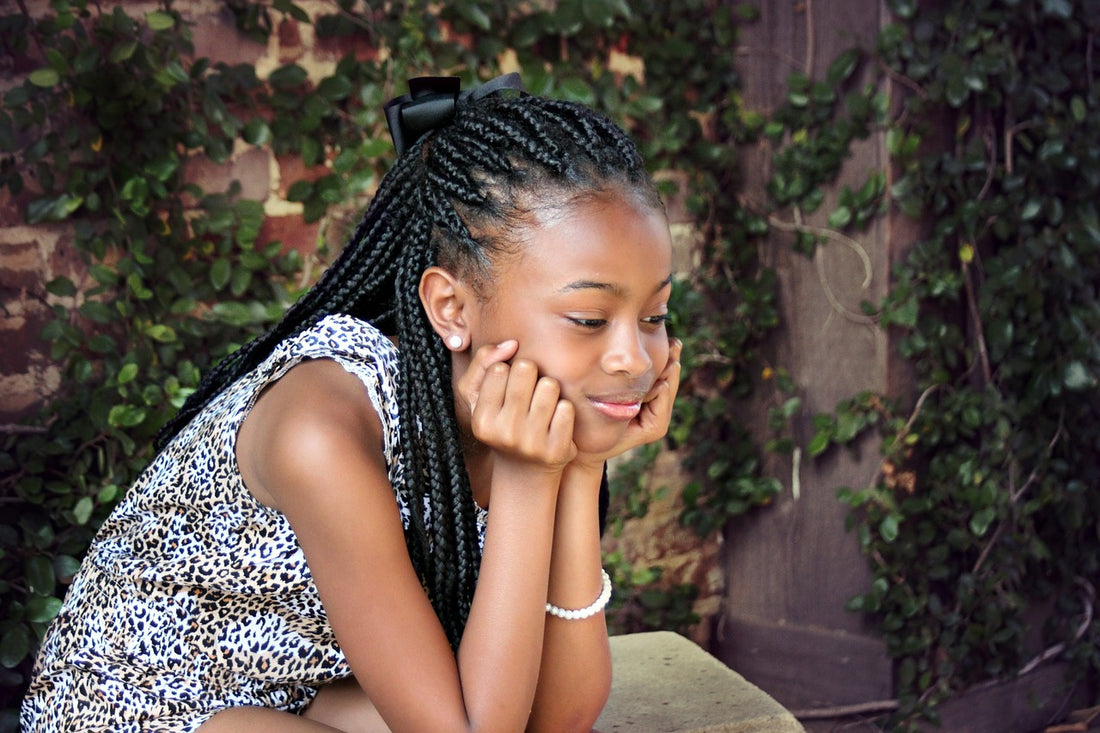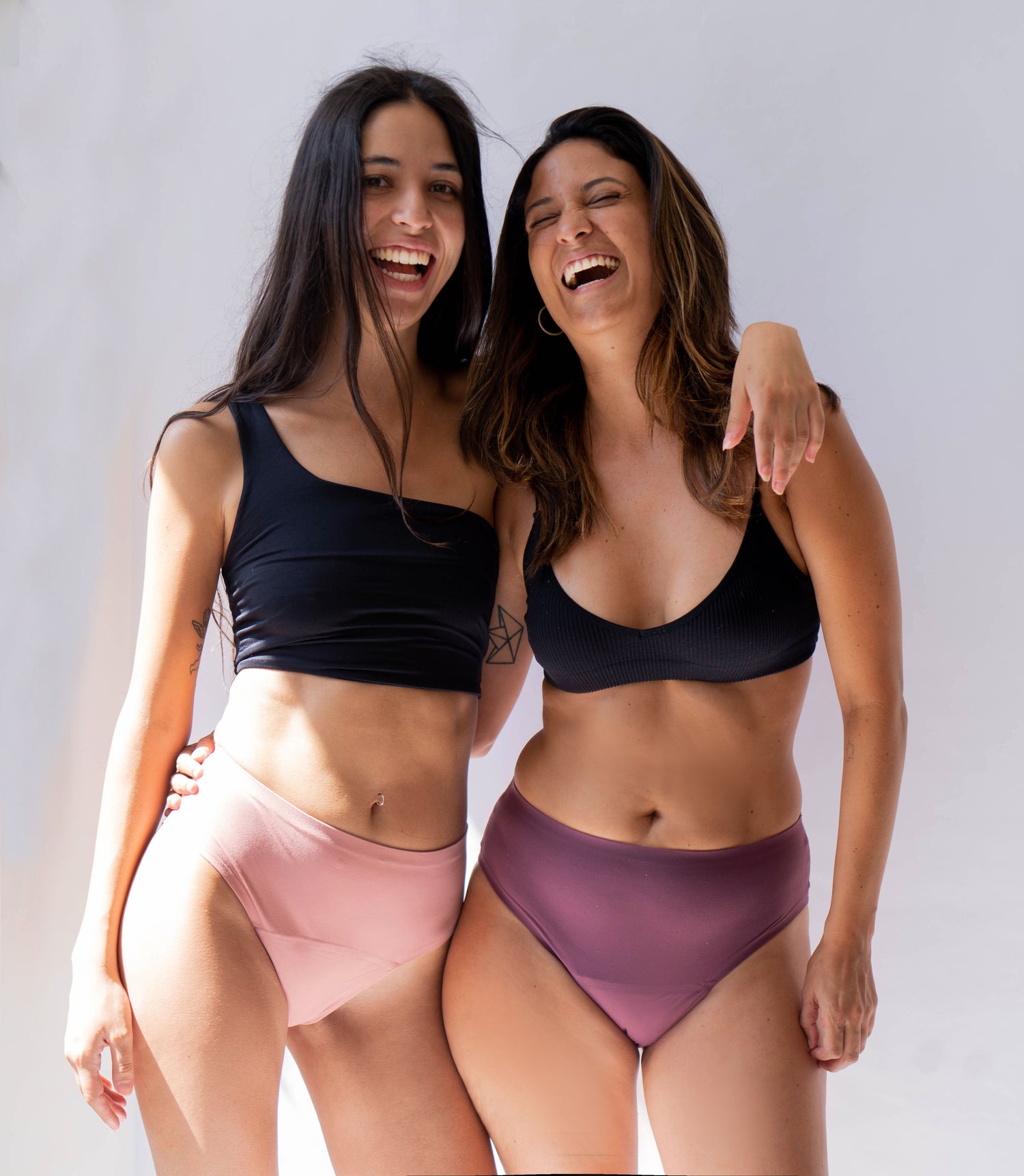A girl today, a woman tomorrow. Girls are starting to menstruate earlier than ever. Studies show that an early first period has a number of negative consequences and hypersexualization of girls is one of them.
The menarche is the first menstrual cycle or menstrual bleeding for people with periods and is widely considered the central event of puberty for girls. Puberty is defined as “attainment of fertility”.
This attainment of fertility is a bloody big deal for most girls. The menarche brings home the fact that if you are menstruating, you are most probably ovulating and therefore you could, potentially, get pregnant. Since motherhood is often viewed as the peak of womanhood, one could be forgiven for feeling the vertigo of being a child one month and a woman the next, all because of the arrival of a first menstrual bleeding.
Most of us go through a pretty wide range of emotions when the first period arrives: from elation to fear, from excitement to apprehension and everything in between. This is completely normal. It takes some time to get used to this bleeding out of your vagina for a few days every month business, the cramps, the spots and suddenly needing a bra.
The mystery of suddenly becoming a woman
It is a milestone in most women’s life but let’s not be too dramatic and too “My Girl” about it. The menarche is part of the female physical development, not more or less enigmatic than boys experiencing a growth in body hair or a change in their voice and genitals. In fact, I think that taboos about menstruation feed off the mystery and secrecy about “becoming a woman” that surrounds it.
I got my first period at 13, I was probably the last one among my peers (even though I suspect that there was some fiddling going on, either that or the whole class got their period within the same four months) and when my mum told me “now you are a woman, now you can get pregnant” I burst into tears. I was not ready to be a woman or to have sex (because what other way is there to get pregnant?) just because there was blood on my panties and a huge spot on my chin. The menarche did not turn me into an adult and I think it’s the same for most girls.
Can an early first period have negative consequences?
There have been concerns lately regarding the decline of the average age of the menarche in the last century or so. Studies show that the average age of first menstruation in white girls in the US has dropped from an average of age 17 to 13.
The causes for this decline seem to be down to a number of dietary factors (increased animal protein intake, exposure to endocrine-disrupting chemicals), exposure to Phthalates (used to make PVC plastics more flexible and it is used in toys, food packaging, shower curtains… you get the idea) and physical inactivity, among others.
A number of studies back up the fact that girls with an early menarche are more likely to be on the receiving end of physical and sexual violence, and by the looks of it, to have their claims dismissed: apparently, raping a 13 year old is somehow more acceptable if she looks older. These girls are also more likely to have a .
As Kathleen O’Grady says in her essay “Early puberty for girls. The new ‘normal’ and why we need to be concerned”, “We may need to separate our notions of “childhood from physiological development (an 8-year-old with breasts is no less of a child than an 8-year-old who has not yet developed”). It is incredible that this need to be said at all but according to Sandra Steingraber in “The Falling Age of Puberty in US Girls”, “early puberty alters a girl’s social interaction in ways that produce trauma and erode self-esteem”.
Perhaps needless to say, early maturing boys do not have the same patterns or outcomes.
Rushing girls into womanhood and hypersexualisation
An early first period puts a tag on a girl that might be far from ready to become an “adult woman”. Not only she may not be ready to behave in a certain way yet, she may choose to never adopt the persona that society defines as “womanly” and the way she wants to express her femininity may change and evolve over time. Puberty is for discovery and change, not a time to have an identity imposed upon us.
Young girls that have reached puberty or adolescence are in danger of being hypersexualized. I am referring to girls being depicted or treated as sexual objects, and assumptions being made about their sexuality because of them looking or having the biological traits of ‘grown women’ (this usually means “she has breasts”). It also refers to the media and marketing of products that encourages them to act in adult, sexual ways, or to see themselves through the male gaze.
Some think that tweens start trying to “be adults” (using make-up, talking about boys in a sexual way, drinking, smoking) but I would argue that this is more playing, a rehearsal of what they believe to be a grown up behaviour, as well as conditioning, rather than the real thing.
Related blog post: Can Virgins Use Menstrual Cups? Virginity & Period Products
An 11-year-old is not ready to be an adult
Talking about conditioning: A petition to stop the media from sexualising children collected 30,000 signatures within the first 24 hours, a few years ago padded bikinis for children had to be withdrawn from the market and quite recently there was some controversy about pole dancing classes for 11-year-olds.
I doubt that 12-year-olds have much to say on the pictures a national newspaper publishes, what multinational retail chains have on offer or the films for kids made by large movie studios, so to say that young girls are to blame for this hypersexualization is ridiculous, to say the least.
The dangers of sexualising children are well documented and while we figure it all out, young girls are receiving very mixed messages. Most find it quite difficult to navigate the changes their bodies are going through, their blossoming sexuality, their level of maturity and their own desires versus what is expected from them.
While adolescence and the changes it brings, including sexual curiosity, are to be celebrated, it is ridiculous to think that an 11-year-old is ready to be an adult. Her early first period does not turn into a sex kitten because she needs a bra and a menstrual cup. She may be trying to look and behave grown up but she is still a child and it is up to us adults to respect this fact.
How to talk about first periods
Next time a girl near you starts her periods, try not to make assumptions about how she may feel. She could be happy, sad, anxious or indifferent. Put her on the driving seat of her body and emotions by asking her what it means to her, rather than telling her.
Avoid comments like “oh, you are a woman now!”, “you must be so excited/so scared”, “watch out with the boys!”. Do not assume she sees herself as an adult, or that she has metamorphosed into a different person. If so far she has been uninterested in shopping, makeup and “talking about boys”, she is unlikely to have changed overnight. She got higher estrogen levels, not a personality transplant.
Ask her questions and do listen. It may encourage her to ask her own questions and she will appreciate your straight answers. The best way of appreciating this step towards adulthood is openness, sincerity and leaving prissy notions about menstruation behind.
Let’s treat menarche like the biological development it is, let’s talk about it and provide children and teenagers with the support they need to manage it and understand it. Communication blows taboos away, if we talk about menstruation, we may talk about desire and sex and maybe help young people make better decisions. Menstruation is wonderful but it does not an adult woman make.
Related blog post: Is My Daughter Old Enough To Use A Menstrual Cup?
 Your Account
Einloggen
Your Account
Einloggen
 Basket
Basket



